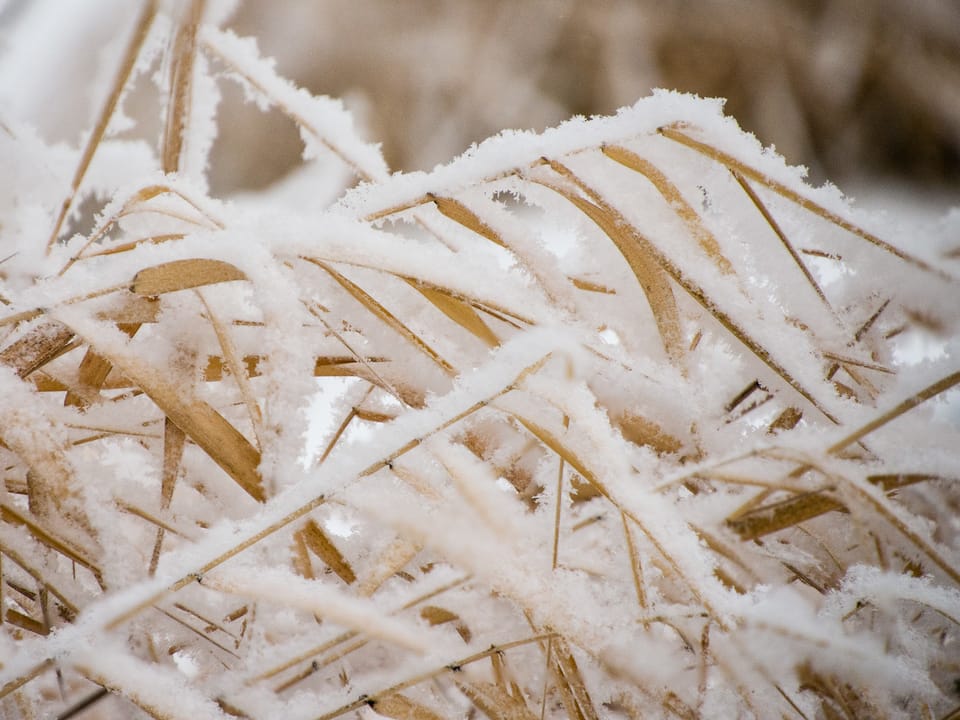EcoWest News, February 4, 2024

Welcome to EcoWest News, a weekly round-up of news and resources that you can put to use in addressing environmental issues and protecting the wild in your community.
It’s encouraging to read about researchers studying sustainable agriculture practices, footballers speaking out about the sport’s environmental impact, and individuals using their voices and photographic skills to protect polar bears, glaciers, and snails.
Across the West
Saskatchewan is home to the world’s largest high-grade uranium deposits: an overview of what uranium is, who owns it, revenue, and future plans. [The Narwhal]
A University of Manitoba researcher is promoting sustainable farming by looking at practices farmers can use to improve the efficiency of their nitrogen fertilizer use and reduce losses. [The Manitoban]
University of Saskatchewan researchers “are trying to identify what makes bats naturally resistant to certain infections and how their genes play a role in their extremely efficient immune response”. [USask]
A proposal for a fracking site a kilometre from their homes in northern BC left residents concerned about their risks from fracking-induced earthquakes. One resident’s insurance provider has already said it won’t cover damages from an induced earthquake. [The Tyee]
Across Canada
A handful of Canada’s endangered species have made a comeback following intervention to address the primary cause of decline and protection against habitat loss. [The Narwhal]
Could a new guide that helps municipalities track, value, and protect their natural assets as part of their financial planning process assist community groups who are struggling to protect urban natural areas? [The Energy Mix]
Around the World
“Addressing football’s [soccer’s] growing environmental impact, and cutting its emissions, is essential for securing a future where football can continue to excite and inspire new generations.” [DeSmog]
New initiatives in Germany are rewetting peatlands and creating markets for the native grasses, reeds, and sedges. [Yale Environment 360]
Stopping methane leaks from the oil and gas industry is a climate win – it also increases efficiency, reduces cancer-causing toxins, and saves money. [RMI]
The ins and outs of seaweed farming: Does it really store carbon? Is seaweed useful as a biofuel? How does farming affect the ecosystem? [Anthropocene] The benefits appear to be limited. [Undark]
Through the Eye of the Camera
Martin Gregus, who has gained a world-wide reputation for his photographs of polar bears and the Hudson Bay area, explains how he is using his art to help protect wild places. [CPAWS MB]
Photographer and videographer Paul Zizka is “bringing awareness to vanishing ice by capturing changing landscapes and ice features around the world”. [Cryophilia]
Making a Difference
Hawaii has adopted a land snail as one of its official animals thanks to advocacy by a student. As was the case with the Hawaiian goose, it’s hoped that the snail’s new designation will help protect it from extinction. [Smithsonian]
DIY
“Environmental crises can seem overwhelming, but we can – and must – try to make a difference . . . [4] well-tested, effective actions you can use to achieve positive policy change for the environment.” [The Conversation]
We can win support for climate action by focusing on future economic and social benefits of a cleaner economy. [The Tyee]
“If we map the work that needs doing, the skills we can bring, and what brings us satisfaction, there’s a sweet spot that could be our personal contribution to the climate challenge.” [Earthbound Report]
Photo credit: https://www.flickr.com/photos/apmckinlay/23375476244
EcoFriendly West informs and encourages initiatives that support Western Canada’s natural environment through its online publication and the Nature Companion website/app. Like us on Facebook, follow us on BlueSky, X, and Mastodon, or subscribe by email.

Member discussion